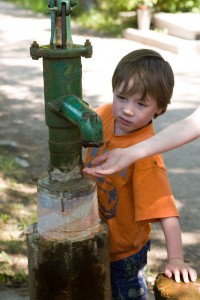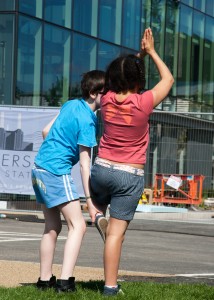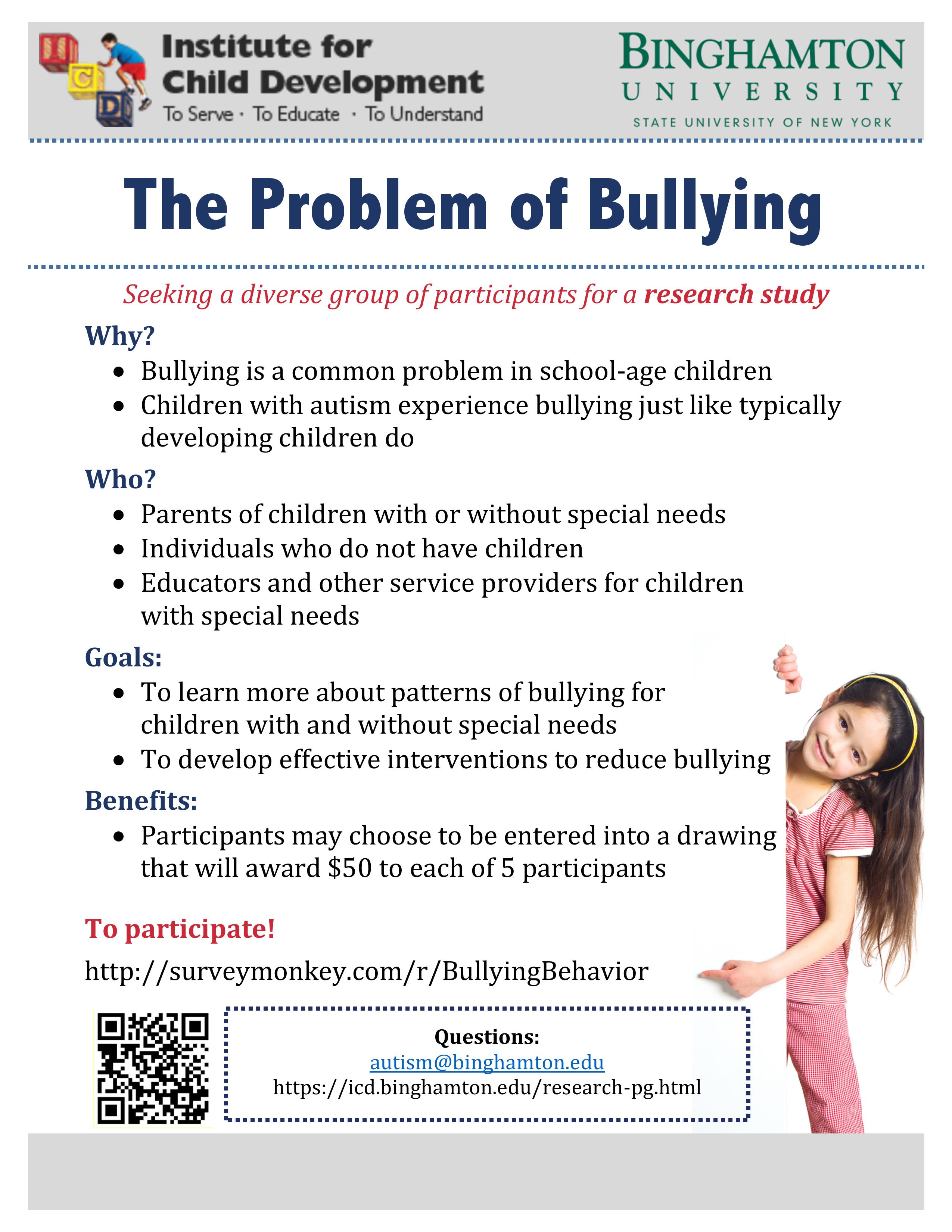It is an interesting topic which comes up both at the school gate and our our facebook discussion page AutismTalk (check it out here https://www.facebook.com/AutismTalk).
At what age do you tell a child that she or he is on the autistic spectrum?
In the case of our son John he attended a nursery school specifically for children with autism. You can read more about the story here https://patienttalk.org/how-easy-was-it-to-get-your-child-diagnosed-with-autism/. So pretty much he know from the work go.
That being said others have very different opinions on the subject.
So we felt that it would be useful to run discussion blog post on the subject. So firstly we have created a poll to allow you to share.
Secondly we hope that you will consider using the comments box below to flesh out your story in a bit more detail. We are sure it will help people dealing with this issue.
Many thanks in advance
| JosephDSmith | PamelaHorbach JosephDSmithActually, I would recommend you read up on Temple Grandin, a world famous diary farm designer, who was diagnosed with Asperger’s. This is her website, if the Moderators don’t mind me to post the link;
Her website: http://templegrandin.com/ Also, use your favorite search engine, such as Yahoo!, Google, or whatever, and type in the search term, with the quotes around it, “Autism resources”. I hope that this helps. |
| PamelaHorbach | JosephDSmith PamelaHorbach is there something i could read and study tounderstand about it better,thanks for your help |
| Alaskagirl59 | Replying to lady asking about social skills. Medication played a big part in reducing inappropriatebbehaviors such as flapping, twirling, sqeezing legs etc. He started therapy at a young age, 3, and we began the education process as soon as we found out working closely with his educators. He had a few close friends who he felt comfortable with in school, and each year the school kept those classmates together with him. He was given many opportunities to educate his classmates about his condition, and he also had adult friends and family members who accepted him. In High School, he wanted to participate in some sports so we chose (together), Cross Country Skiing and Cross Country Running and Riflery and Swimming: things he could do that didn’t require alot of team interaction. He maintained the same 2 Counselors throughout High school, and we set up e-mail communication for weekly progress. He also has very concerned and SOCIAL siblings who stepped up…in a nutshell, a nearly perfect environment as much as we could make it, with feedback immediately for any inappropriate behaviors and real consequences to help him develop a few healthy supportive relationships. |
| JosephDSmith | PamelaHorbach I can still be a loner at times, but it’s only when I first meet someone. After that, I tend to open up, and never close.
I really only bettered my social skills when I turned 18, when I actually found out that I was autistic. I learned what it really meant to have Asperger’s, which gave me the opportunity to learn that my actions are often inappropriate, and it helped me learn why they were such. Before that, I had no idea that I was out of line, because nobody had ever explained to me why, and I was stubborn when I didn’t have an explanation. You just have to meet your son’s individual needs, and if he is ever diagnosed, then try to let him know what his condition makes him do, and let him know what can be done better the next time in regards to what his autism makes him do. |
| PamelaHorbach | What did u do to better your social skills be cuz my son is very shy and a loneR and he has never been diagnosed and I wonder ? We’re u shy and a loner? He’s 20 now and in college |
| Alaskagirl59 | We knew something was off when he was an infant. He was scissoring his legs. Did not like to be held, but enjoyed hours in his swing. Could imitate the sounds of a car shifting at several weeks of age. Talked early but sounds of any kind that involved machinery like fork lifts caused him to scream and panic. When he began walking, he started running from place to place and posing and dropping to the ground. This he also did in the middle of the street and we had to grab him up quickly to keep him from being hit. All the while my wonderful caregiver filmed video of his behavior to bring to the various doctors that evaluated him. Chief of Pediatric Neurology at Tulane University Medical Center, Oschner Medical Center, and Children’s Hospital . Complicating matters was my husband’s diagnosis of Tourette’s and Aspergers. Finally, a preschool Summer Volunteer, who also happened to be a Kindergarten teacher with a Masters in Speech and Language Pathology, called me aside and helped me get him evaluated by a Pediatric Neuropsychiatrist and into therapy and treatment. Diagnosis: High Functioning Autism vs. Aspergers. There is of course more to the story than this brief communication. Last year, in his High School swim class, we nearly lost him when a classmate noticed him on the pool’s bottom. He was unresponsive, taken to the ER, and treated for drowning…a follow up EEG showed abnormalities but not necessarily a seizure….through his hard work, honesty about his condition with classmates and loving, supportive siblings, he begins his Freshman year at UAA ( University of Alaska Anchorage), with a concentration in biological sciences with hopes to make it through Vet school. Our story may not be typical, but it’s our story.
|
| JosephDSmith | BeckyMcCleveTraeger Good for you! Your son sounds like an angel, an angel with a passion for tolerance and respect. Most importantly, he knows the meaning of understanding. Before I knew that I was autistic, my younger sister Wendy was diagnosed with low-functioning autism before she was able to turn 3. Before she received her vaccinations, she was a normal-functioning little girl, doing things for herself, talking, and even singing, but when she was diagnosed with autism she lost all ability to function normally. My point is, my little sister taught me early on the meaning of understanding of others differences and I’ve always advocated for those with intellectual disabilities. I was only 3 when she was born, so that is an early age for advocacy. Thank you Becky for being a wonderful parent to your son, and for raising a fine young man. May you and your family be blessed, forever. |
| BeckyMcCleveTraeger | Our son wasn’t officially diagnosed until he was 5 1/2, with Aspergers so I answered the poll “5-6 years of age.” We have always been open and honest about being “different” and why he had to do so many therapies. I didn’t want him to be “surprised” by one day sitting down and having “the talk” with mom and dad… I based this off of experiences unrelated to ASD. Growing up a few of my friends were adopted. The ones that “always knew” were much more adjusted and confident while the ones who were sat down and told later on. They always seemed to struggle more. Being open/honest has also helped with extended family members and friends. It’s been 2 years since his official diagnosis and just 2 weeks ago, he spoke to his whole class about ASD and the challenges he faces (also the good things). He is already beginning to self advocate. We have had nothing but positive experiences in telling our son as early as we knew. |
| Lenadass | My son is 7, and we just found out he has Asperger’s syndrome and/or ADD. Should we tell him he is special from other kids? What is the appropriate age to tell? |
| CrystalHatcher | I have 2 sons with Autism. My younger son was diagnosed at 12, and he knew each step of they way what was going on. We talked about what it meant because I thought it was important for him to know that their is nothing wrong with him, that everyone is different in their own way. My older son was diagnosed at 17, a year after his younger brother and we told him as soon as we find out. |
| Ymkje Wideman | I was the primary caregiver of my grandson for the first 6 years of his life. He was diagnosed while living with me at 3 years of age. He asked me one day, “Autism Is…?” when he heard me talk about his autism with a friend. I later explained it by writing a story/poem for him. He loved it and so did my friends. In 2012 I published it as “Autism Is…?” It is available here https://www.createspace.com/3809107 and on Amazon.com. Many parents have used it to explain Autism to their children on the spectrum and it’s great for siblings, too. I hope this is helpful. |
| xenagirlcat | My brother was diagnosed at about 14 I think my family had to research each false diagnose and find the right doctors that could help us. I know one of the biggest problems we have is that my brother from his dad has multiple psychiatric issues. |
| ohree1720 | My son was diagnosed at age of 3. We were in disbelief initially, but quickly came to accept it . We read as many books as possible to get up to speed on a subject we knew little about but had a major impact on our lives. |
| GWall | I think when the child starts to notice it is a good time to tell them, especially if start they label themselves as a ‘Bad Child’. Just remember its a bigger deal for the parents, kids don’t know any different If they know from early on. Its when parents hide the truth it creates confusion and feeling of deception and insecurities in older children. |
| JosephDSmith | If it weren’t for me looking at my application for Vocational Rehab, I would’ve never have known that I was diagnosed with Asperger’s Syndrome. My parents would NOT let a single soul tell me that I was autistic, not even my therapists, or my school counselors. I was shocked that they never told me, and this was a huge problem, because when I was going into the 8th grade, I noticed that I was “different” than everybody else, so I started to wonder what was “wrong” with me.
This wondering became overpowering through the years, so I had to seek therapy, but still the therapists weren’t allowed to tell me what was wrong, so I even thought that maybe it was from using permanent markers, but the therapist told me that just smelling them won’t make you do that. I spent many years just focusing only on what was wrong with me, and this lead to developmental problems with learning. I was so frustrated, trying to figure out every which was what was wrong with me, that I never learned to develop fully into an adult. If I had known that I was autistic from the beginning, I would’ve learned to develop better social skills and I would’ve realized why my actions weren’t appropriate. I hope you understand what I am saying. I am now going through a lot of psychological issues from the many years of stress. I was diagnosed at around 2 or 3 years old. My parents hid this from me, and I am just now learning to take better care of myself at the age of 25. I love my parents to death, and I understand why they hid it from me, because they didn’t want me to limit myself and to think that I was dumb or any less important. I have no resentment towards them like I did two years ago. I would do anything to protect them and to make them happy, and we are especially happy for my younger sister, at the age of 22, who is low-functioning autistic; she is the center of me and my parents’ lives! |
| KathrynA | My son, now 44, was diagnosed with pervasive development disability at age 4. We didn’t know it was a form of autism at that time. There were very few programs back then. It is very hard now that he is an adult because he is highly functional. He drives and holds a full-time job with good pay. We could use services for him because he is often uncommunicative with us. I hope that because of so much awareness now that more services for adults will come out of it as these kids grow up. |
| MandyTanner | My son started showing signs at the age of two but was officially diagnosed a few days after his 3rd birthday. I am still so overwhelmed and trying to find more information to help me with taking care of him. Your forum/blog has really helped in some of the areas I need help. I am just glad to have answers after a year wait to get him diagnosed. Thank you for your help as well! |
| KatrinaBaldwin | My son was formally diagnosed at the end of last year, at the age of 8. I’m still coming to terms with it and trying to understand it myself and as part of the process feel that it needs to be talked about openly both in our family and publicly. For that reason I have just this last couple of weeks started discussing it with him. I think it helping us both. |




